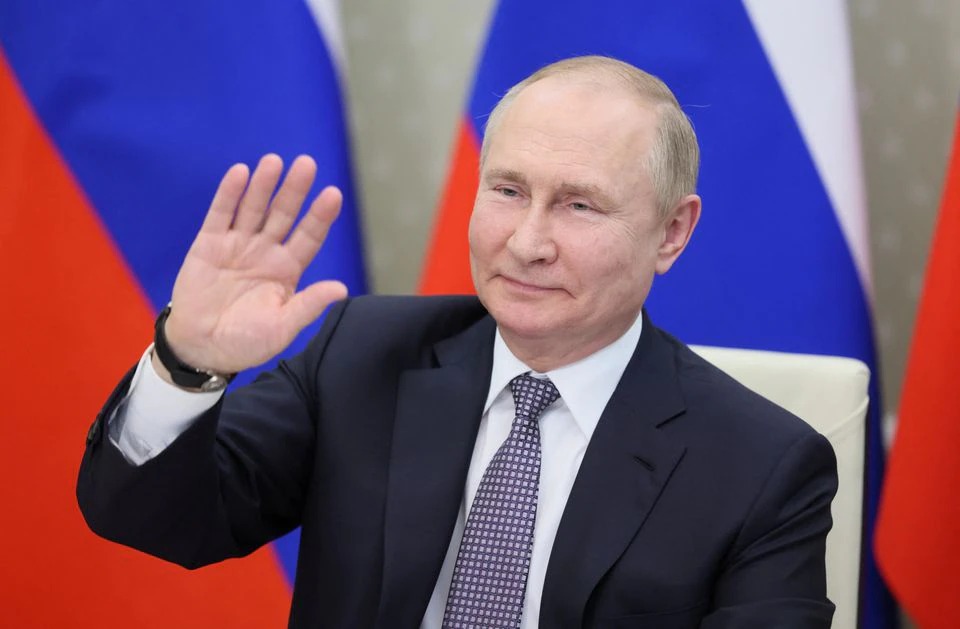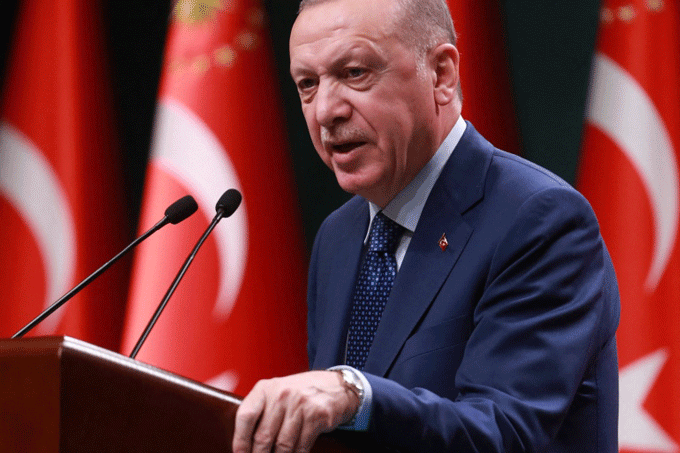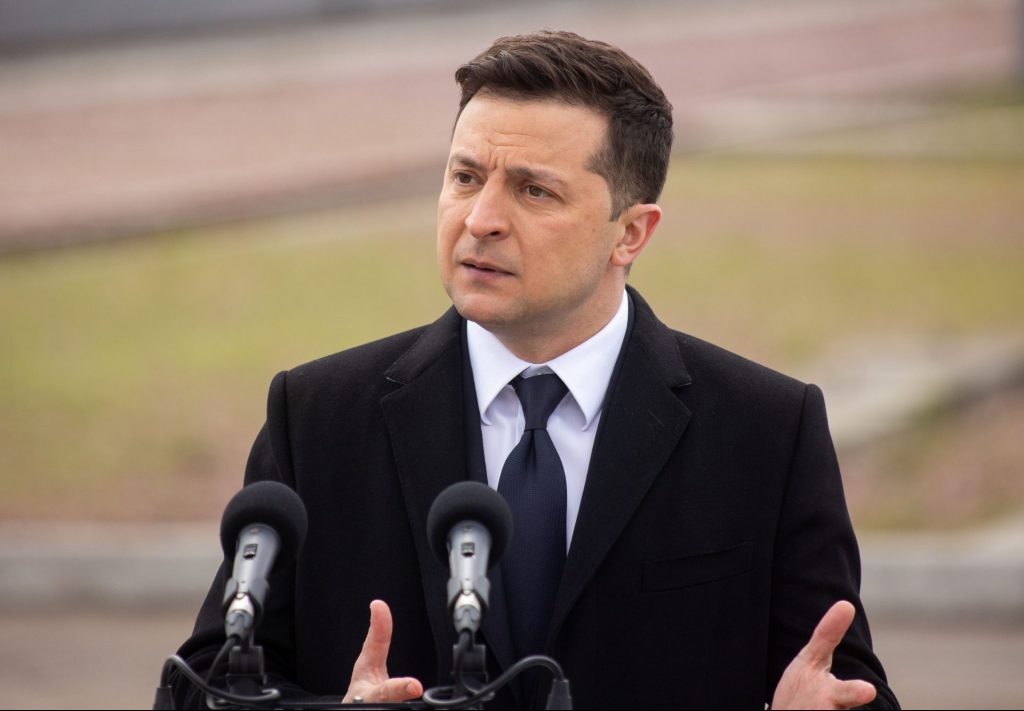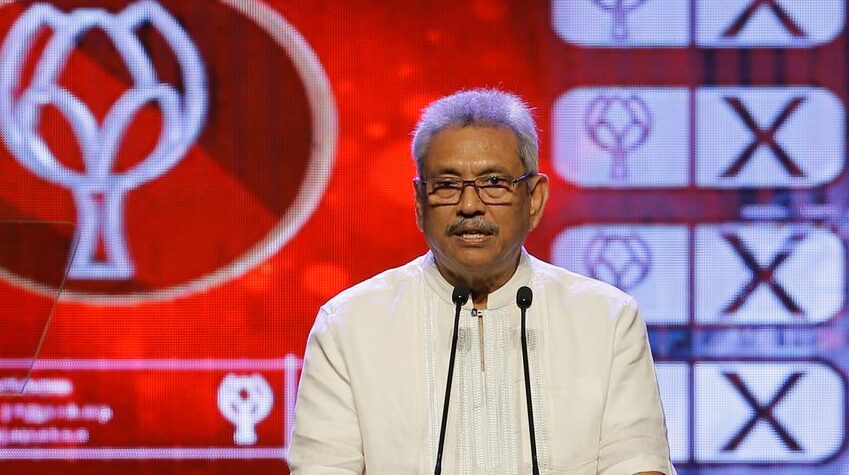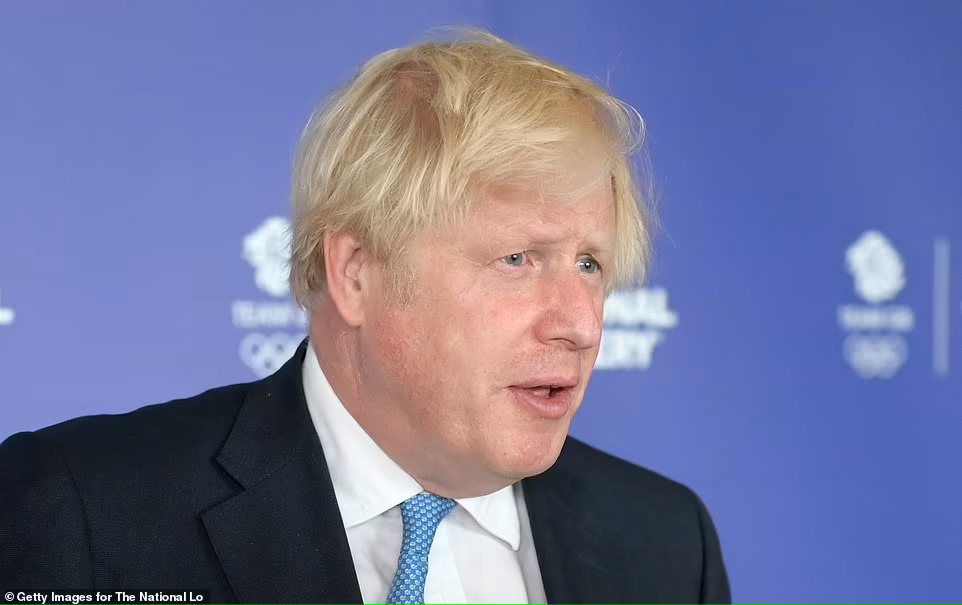
A desperate race against the clock is under way to evacuate thousands of Britons and Afghan allies from Kabul today after the Taliban seized power.
The airport at the country’s capital has been engulfed in carnage with reports of deaths as people scramble to get out.
The first flight carrying those fleeing has arrived back at RAF Brize Norton. But Ben Wallace choked up this morning as he admitted that some of the Afghans who helped UK forces over the past two decades ‘won’t get back’ due to the speed of the military collapse.
Families have also been pleading for more support to help up to 3,000 British nationals who are among an estimated 4,000 people trying to escape Kabul for the UK.
Some 700 British personnel are deployed at the airport, with Mr Wallace insisting the key areas are still secure despite chaotic scenes. He said it could take more than 36 hours to get another 1,500 out, suggesting nearly 800 of those will be Afghans. Government sources said 1,000 interpreters and other staff had arrived over the past few weeks.
It is not clear how the evacuation is being prioritised, with Mr Wallace stressing that vetting applications to leave at high speech was more of a challenge than maintaining flights.
There was another blow this afternoon as the US confirmed it has paused flights while the airport is brought under control, although it is not known whether the British effort has been affected as well.
In a sign of the frantic efforts, the British ambassador Sir Laurie Bristow is believed to be helping the small team of diplomats still in the country to process the applications.
- Chamisa under fire over US$120K donation
- Mavhunga puts DeMbare into Chibuku quarterfinals
- Pension funds bet on Cabora Bassa oilfields
- Councils defy govt fire tender directive
Keep Reading
There is particular concern for the safety of Afghans who worked with British forces when they were in the country as interpreters and in other roles amid fears of reprisals if they fall into the hands of the insurgents.
Mr Wallace said the crisis had become inevitable after a deal was struck with the extremists and the US pulled out, and the focus was now on evacuating British nationals, interpreters and others who might be subject to reprisals.
But he conceded that ‘some people won’t get back’. ‘It is sad the West has done what it has done,’ he said. ‘Twenty years of sacrifice.. is what it is.’
Mr Wallace – who himself served in the military before entering politics – said he felt the issue so deeply because he was a soldier.
The comments came amid rising fury about the dramatic developments in Afghanistan, after Joe Biden stepped up the timetable for withdrawing US troops.
Tories have accused ministers of displaying ‘boredom’ in their attitude towards the long-running military campaign, branding the defeat the worst foreign policy setback since Suez.
Former national security adviser Lord Sedwill said it was an ‘humiliating’ moment for the West and warned terror groups would be ’emboldened’.
The peer told BBC Radio 4’s Today programme: ‘This is a humiliating moment for the West.
‘Afghan citizens are fearful, extremists everywhere will be emboldened, they’ve been quieter since the end of Islamic State – they will be emboldened.’
The Taliban insist they are seeking a peaceful takeover of power and will not persecute those who had worked with the Afghan government or with foreign forces.
However those assurances were being treated with deep scepticism by many British MPs amid reports of threats to those who remain and their families.
Labour has called on the Government to expand the resettlement scheme for Afghans to ensure that none were left behind.
The Prime Minister’s official spokesman said the Afghan Relocations and Assistance Policy was ‘open-ended’.
He told a Westminster briefing: ‘We will continue to do everything we can, our offer is open-ended, we haven’t put an end date on hat and we will continue to do all we can including – as the Defence Secretary said – should individuals manage to get to other countries and be brought in from those other countries.’
He said it was a ‘fluid situation’ but that military personnel were ensuring ‘people can leave safely at the moment’.
He said: ‘We want to obviously continue to do this as long as we are able to do so and as long as it is safe to do so. You’ll appreciate the US have said that they will be leaving at the end of the month so we will keep that under review and we’ll continue to do it as long as we can do so because we want to get as many people out as we can.’
MPs will hold a five-hour debate on Wednesday – the first time that they have been called back from their summer recess since 2013.
But the move was dismissed as too little, too late now that the Taliban has already seized control – with one senior Tory calling Afghanistan’s collapse ‘the biggest single policy disaster’ since the Suez Crisis in 1956.
The Prime Minister appeared to blame the US. He said it was ‘fair to say the US decision to pull out has accelerated things, but this has in many ways been a chronicle of an event foretold … we’ve known for a long time that this was the way things were going.’
Sir Keir Starmer said there was a ‘catastrophic miscalculation’ over the strength of the Taliban and the resilience of Afghan forces.
Speaking on a trip to Wolverhampton the Labour leader said: ‘I think there was a catastrophic miscalculation of, on the one hand the strength of the Taliban and the resilience of the Afghan forces.
‘And I think anybody looking at this would say the timing of this decision to withdraw – nobody wants troops in Afghanistan indefinitely – but the timing of this withdrawal and what has happened and the unravelling of 20 years of progress in a matter of weeks and days, I think everybody is saddened by that and can see the tragedy that lies behind this.’
Pressed on whether there was any prospect of troops returning to Kabul, Mr Wallace told Sky News: ‘No, look that’s not on the cards that we’re going to go back.’
He added: ‘The US have made itself clear that they’re not intending to stay and as the framework nation that leaves us with difficult choices and I’ve been pretty much honest about that all the way through this process.’
On the airlift of British nationals, he added: ‘The military flights are coming in and out, they’ve just brought in more UK soldiers.
‘Border Force is joining us to make sure that we accelerate the process to get more Afghans out, which is our obligation. We flew out 370 staff and British citizens, eligible personnel yesterday and the day before and we’ll continue to engage those flights.
‘The next group of Afghans to come out will be 782 and we’ll make sure we get them in the next 24 to 36 hours out of the country and are continuing to process those people.’
He went on: ‘My job as as defence secretary is to make sure that we protect not only the UK nationals, but those Afghans we have an obligation to, that is actually why we’re in the country. For the last few weeks we’ve been in the country solely to process those people and to make sure we protect our officials doing that job and we’ll continue to do so.’
Mr Wallace – who was a captain in the Scots Guards and saw service in Northern Ireland – told LBC it will not be possible to get everyone out of Afghanistan, with the previous August 31 evacuation timetable now in tatters.
He said: ‘It’s a really deep part of regret for me … look, some people won’t get back. Some people won’t get back and we will have to do our best in third countries to process those people.’
Asked why he felt the situation ‘so personally’, Mr Wallace replied: ‘Because I’m a soldier… because it’s sad and the West has done what it’s done, we have to do our very best to get people out and stand by our obligations and 20 years of sacrifice is what it is.’
Lead elements of 16 Air Assault Brigade have been working with US forces to secure Kabul airport to ensure flights can continue as Afghans and foreigners alike scramble to leave.
Mr Wallace said the barrier to helping more people leave the country was how quickly they could be processed.
He told BBC Breakfast: ‘Our flights, our planning and coming in and out and soon if we manage to keep it in the way we’re planning to, we should have capacity for over 1,000 people a day to exit to the UK. Currently this is not about capacity on planes, it’s about processing speed, so that’s why we’re trying to fix that.’
Last night the first flight of British Nationals and Embassy Staff arrived at RAF Brize Norton as part of Op PITTING.
The UK Armed Forces are supporting the evacuation of British Nationals and those eligible for relocation under the Afghan Relocation and Assistance Program. pic.twitter.com/IyGNIMEaD0
— Ministry of Defence 🇬🇧 (@DefenceHQ) August 16, 2021
Bluntly spelling out the problems the operation faced, Mr Wallace said: ‘With the US’ removal of the framework, the military might and the speed of the Afghan government collapse, it’s simply not possible for us to send small bands of troops miles into Afghanistan to find people if they’re not able to be found.
‘It is a deep regret that we have gone to a position we have, I haven’t hidden that over the last few weeks. We are doing everything we can to get those people out.’
Asked if translators who have helped British citizens are eligible to come to the UK, he said: ‘Yes, they are. People who are eligible are people who have worked for us in what we call public-facing roles, people who’ve worked for us but are not in public-facing roles, contractors and third parties … and any other special cases.’
Outlining the process of checking people who are being flown to the UK from Afghanistan, he added: ‘We do have to make sure that some of the people we’re bringing back aren’t affiliated to either a terrorist organisation or the Taliban, which, I’m afraid, a very, very small number have been.
‘They might not have worked for us for 10, 12, 15 years, so we have to see that they are right. We’re doing our very best to make sure we do not discriminate against those people who are fully legitimate to come here.’
Challenged that the Taliban had ‘won’, Mr Wallace said: ‘I don’t know about a win, I think, I acknowledge that the Taliban are in control of the country. You don’t have to be a political scientist to spot that’s where we’re at.’
Last night Mr Johnson vowed to work with allies to prevent Afghanistan again becoming a ‘breeding ground for terrorism’.
After chairing a meeting of the Cobra emergency committee, he admitted the situation in the country was ‘extremely difficult’ and was ‘getting more difficult’.
In an apparent admission that the West is now powerless to resist the Taliban takeover, the Prime Minister said he wanted a co-ordinated response to the coup ‘in the coming months’.
He called on the international community to not ‘prematurely’ recognise any new government without agreement amid fears that Russian or China could unilaterally move to endorse the regime.
‘We want a united position among all the like-minded, as far as we can get one, so that we do whatever we can to prevent Afghanistan lapsing back into a breeding ground for terror,’ he said after meeting Team GB’s Olympic heroes at an event in Wembley.
‘What we’re dealing with now is the very likely advent of a new regime in Kabul. We don’t know exactly what kind of a regime that will be. What we want to do is make sure that we as the UK pull together our international partners, our like-minded partners, so that we deal with that regime in a concerted way.’
The Prime Minister, who yesterday held calls with Nato secretary general Jens Stoltenberg and the UN secretary general Antonio Guterres, said there should be meetings of Nato’s North Atlantic Council and the UN Security Council as soon as possible.
But senior Tories have voiced anger at the way Afghanistan has been abandoned to its fate, 20 years after international forces entered the country.
Former defence secretary Dr Liam Fox said: ‘The situation in Afghanistan has all the elements of a strategic disaster.
‘A democratic government removed by military force, a Taliban-enforced brutal Islamic State and the door opening again for Al Qaeda and similar groups who will threaten our safety and security.’
Tom Tugendhat, chairman of the Commons foreign affairs committee, said that the country’s collapse was ‘the biggest single policy disaster since’ the Suez Crisis in 1956. The Tory MP, who served as an Army officer in Afghanistan, said the priority had to be to get as many people out of Kabul as possible.
‘The real danger is that we are going to see every female MP murdered, we are going to see ministers strung up on street lamps,’ he told BBC News.
Tobias Ellwood, a former captain in the British Army and chairman of the defence select committee, criticised the West for pulling out of Afghanistan.
Appearing on Sky News, he said: ‘The world is now a little bit more dangerous because they’ve now taken control of the country, and the West should really hang its head in shame after abruptly abandoning Afghanistan to a civil war after two decades of effort.’
He added: ‘This is not a good day for the West at all, and China will be observing things very, very closely indeed. They are already making alliances with the Taliban and glossing over the human rights atrocities that are likely to unfold.’
MPs who want to speak at the debate will have to be in the chamber as virtual arrangements are no longer in place. Peers will also hold an emergency sitting in the Lords.
The last time MPs were recalled during summer recess was in 2013 following the use of chemical weapons in Syria. – dailymail



